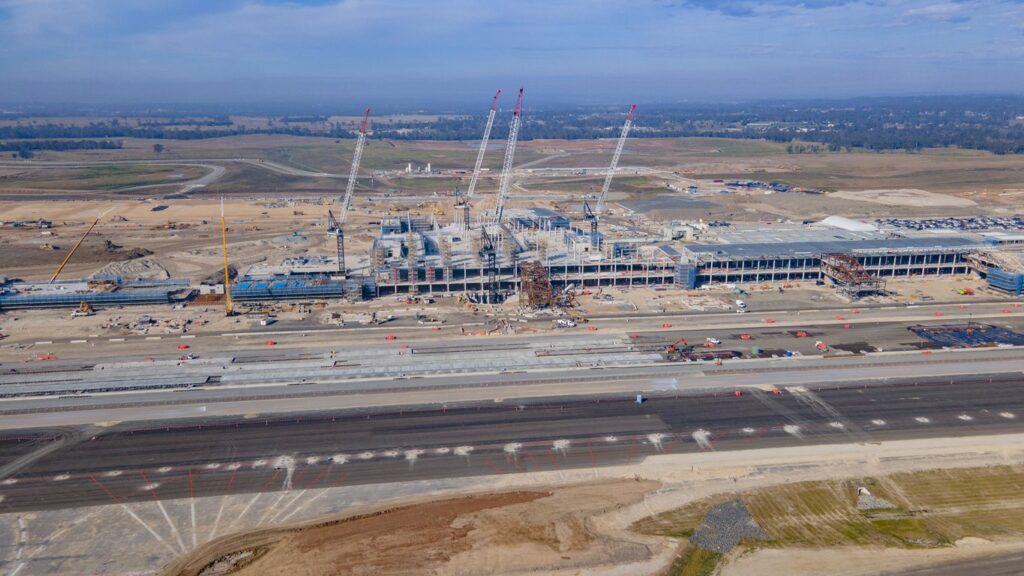December 14, 2023 by Mike Grillo
In an ever-evolving construction industry landscape, having insights from those on the front lines is invaluable. The Construction Risk Community series by Procore Risk Advisors seeks to bridge the gap between curiosity and knowledge, providing a platform where industry professionals can get direct insights from leading experts.
Each edition of the series dives deep into pressing topics, trends, and challenges faced by construction companies. By posing pertinent questions to seasoned professionals with vast industry experience in insurance and risk management to surety bonding, we aim to shed light on areas that often remain shrouded in uncertainty.
From diving into the complexities of insurance and surety markets to understanding the nuances of risk management, data or technology, our experts break down subjects into digestible insights. Whether you’re a construction company executive, developer, a project manager or someone keen on industry insights, the Construction Risk Community series is your go-to resource for expert opinions and advice.
For this installment, Mike Grillo, Procore Risk Advisor’s surety brokerage leader, discusses everything from the anticipated conditions in the surety marketplace to ways contractors can improve their prospects for the surety capacity needed to support their business plans.
Q: How would you describe the current state of the surety market for construction companies? Are there any notable trends or changes compared to the past?
A: There remains ample capacity in the surety industry. Many contractors across the country however are beginning to test the limits of their backlog and surety programs. Fortunately, overall industry profitability for both contractors and for sureties has been good. New surety companies continue to enter the marketplace. The U.S. surety industry remains “top heavy” with the five largest writers holding a 40-45% market share. Loss ratios (the % of incurred losses / premiums written) have remained in the mid-high teens in recent years, which is quite good compared to the last 40+ years.
Underwriters are seeing signs of financial stress in the subcontractor community, a condition that — in the past — has been a precursor to broader surety loss activity. For some sureties, this has resulted in tighter underwriting scrutiny, particularly in the subcontractor space.
Q: What are the challenges construction companies face in gaining surety support for new opportunities or when confronting trouble on a project?
A: It’s a cliche to say the surety business is a “relationship business” because it is. Underwriting decisions are based on data and a number of objective data points, but the tough and close calls are based on the confidence an underwriter, the contractor and the surety advisor all have in one another. That trust is paramount and can only be developed through transparent communication (of both good and bad news), reasonable and credible forecasting and delivering on commitments made.
Q: What objective factors should construction companies prioritize when communicating with their surety? How interested are underwriters in the technology your firm employs?
A: Remind them of the basics that make your business a high quality credit risk. Things such as your discipline on selection and management of subcontractor performance risk, your safety culture, the “extra set of eyes” that reviews each bid package, etc. Focus not just on what technology you’re using, but also the positive impact it is having on your operations. Data points that reflect improved schedule and margin maintenance on projects, safety experience and real-time management oversight will grow the confidence of your surety in supporting an expanded backlog of work.
Q: Given market uncertainties, how can construction companies ensure their surety provider remains committed to the relationship?
A: Absent a crystal ball, this is a tough one, but the communication mentioned above should work both ways. Contractors should inquire about their surety’s operating results, its current forecast for growing or contracting its appetite and any potential personnel changes that could affect their support. When it comes to the surety relationship, there is no such thing as too much communication.
Q: What should I expect from my surety broker?
A: A surety broker has two jobs. He or she should be a proactive business advisor with a thorough knowledge of your business plan and the surety marketplace, who ensures adequate and stable surety capacity is readily available to help your firm achieve its goals…and saves you time, energy and money while doing it.
Stay ahead of the risk management and insurance curve with insights that matter.
If you enjoyed this article, check out the other installments from the Construction Risk Community Series: Construction Risk Community: Builder’s Risk — A Guide to Market Trends, Challenges and Strategies
With over 13 years of construction surety credit underwriting and brokerage experience, Mike Grillo is a founding partner of Procore Risk Advisors. As head of surety advisory, he is responsible for the strategic direction of Procore Risk Advisors’ surety advisory practice.
Mike’s combination of technical expertise, construction industry stakeholder relationships, and forward-thinking mindset has made him a leader in the area of construction surety. He is well-versed in credit analysis, credit negotiation, and contract review, as well as complex construction arrangements including P3s, international placements, and private equity investments. At Procore, Mike and his team are modernizing construction surety brokerage by combining data, technology, and expert surety advisory.
Reader Interactions
>>> Read full article>>>
Copyright for syndicated content belongs to the linked Source : Procore.com – https://www.procore.com/jobsite/surety-in-uncertainty-a-guide-to-market-trends-capacity-and-relationships
